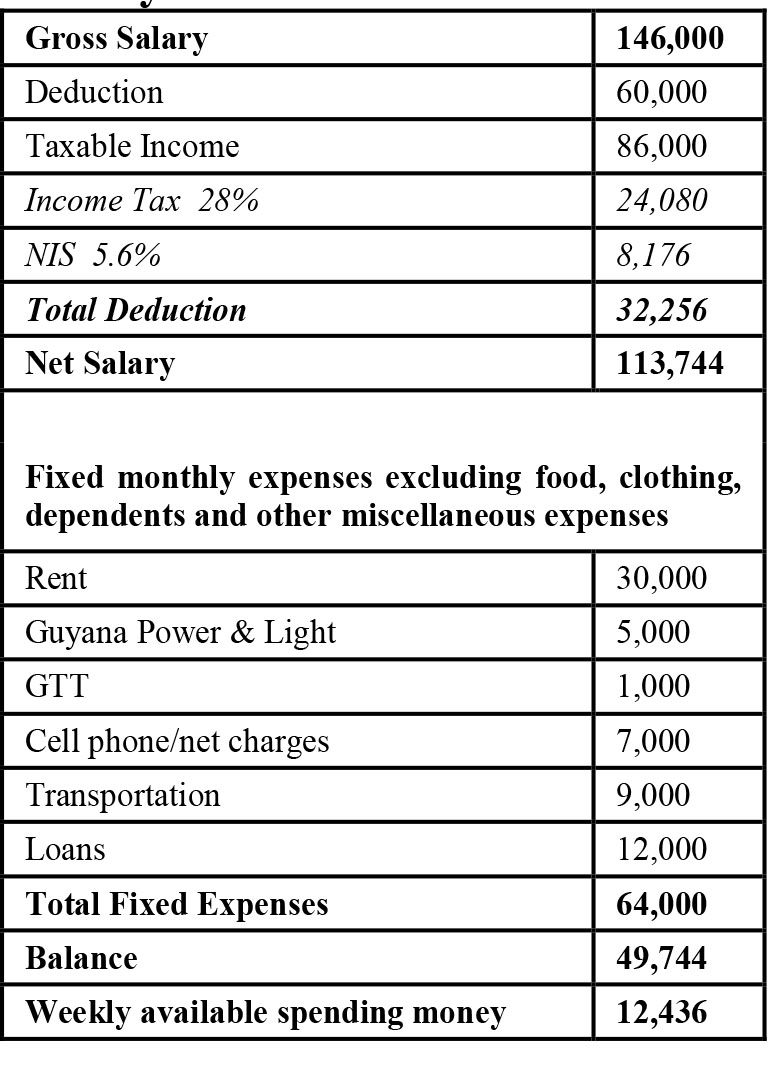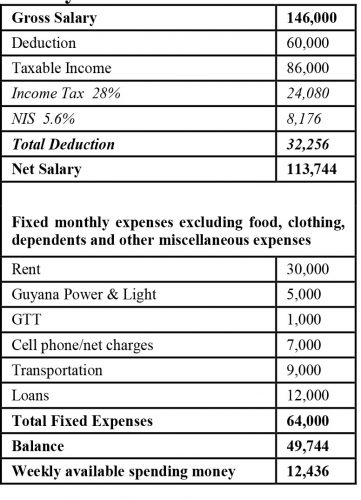Dear Editor,
A number of individuals, whether lobbyists for government or acting in their private capacity, attempt to dampen the GTU’s proposal that was agreed through the established Task Force by asserting that what is being asked for is too much, either in percentage terms or nominally. This pin-headed argument has been refuted by the coalition administration themselves, both on the 2015 campaign trail when they vociferously sought to represent public servants’ salaries issues, and upon accession to office, when they almost immediately granted themselves a whopping 50% increase on their own salaries, which far exceeds that of the minimum wage many public servants receive. There is little dispute that teachers and public servants in general are grossly underpaid, and that this is a principal reason for much of the prevailing corruption and the dismal level of service across the public sector. At stake is the desired level to which the minimum wage should be adjusted in order to be in line with a ‘living wage’. (Across-the-board percent increases will be more costly than a flat nominal adjustment to all salary scales) It is unfortunate that the unions have been unable to secure technical expertise to prepare a proposal which provides a justified figure for a living wage. I myself have done some work previously in which I have shown that a salary of $146,000 (arbitrary, contextual number) still leaves public servants hard-pressed every month. The table is reproduced here:
Claims by the administration regarding the estimated aggregate cost of the proposal of the Task Force I have already observed to be scurrilous and a shallow negotiating trick. The fact of the matter is that public servants’ salaries issues should have been addressed since back in 1999 under the PPP administration. This was never done because the PPP administration at the time considered it opportune and expeditious to address citizens’ welfare issues through grand projects which saw billions of taxpayers’ dollars being siphoned off to crony businesses through overpricing and shoddily executed contracts, which required still more taxpayers’ money to fix.
Prior to the 2015 election, the coalition was on the side of workers, vowing to address their issues. Now they are sitting across each other at the negotiating table, with the coalition representatives insisting on attempting to make fools of workers’ representatives. The welfare issues of Guyanese which can be so easily addressed through increased salaries if they are made a priority by this administration are being sidelined in favour of previous government policy of massive projects in successive national budgets which can never hope to accomplish what increased salaries can. Salaries and welfare issues of workers, both public and private, are not a priority of this administration. They will only be addressed if they are made a priority. There are two ways to achieve this: 1) Carry out a sustained strike action for better salaries; 2) Replace them at the next national election.
In respect of the proposals of the joint task force, it is recommended that the teachers’ union simplify their case for now by scrapping the miscellaneous items and stick to getting their proposed percent increases. Increases of 40% annually for the next three years will go a long way to ameliorating the dire needs of all teachers. The solution to many of the problems which plague us as a society is increased salaries for public servants. If we want to see improved pass rates for students which will give them a better chance in this increasingly challenging globalized environment, increase public servants’ salaries. If we want to see an improvement in public health care, increase public servants’ salaries. If we want better infrastructure which lasts, increase public servants’ salaries. If we want to see reduced corruption in GRA, the police force and other government institutions which handle money, increase public servants’ salaries. Just increase public servants’ salaries.
Once the unions have been able to establish an acceptable living wage, they should immediately pursue efforts to recover monies due to public servants for back years.
Yours faithfully,
Craig Sylvester


